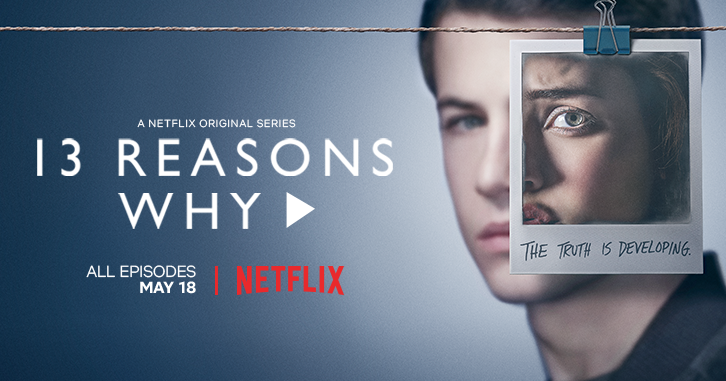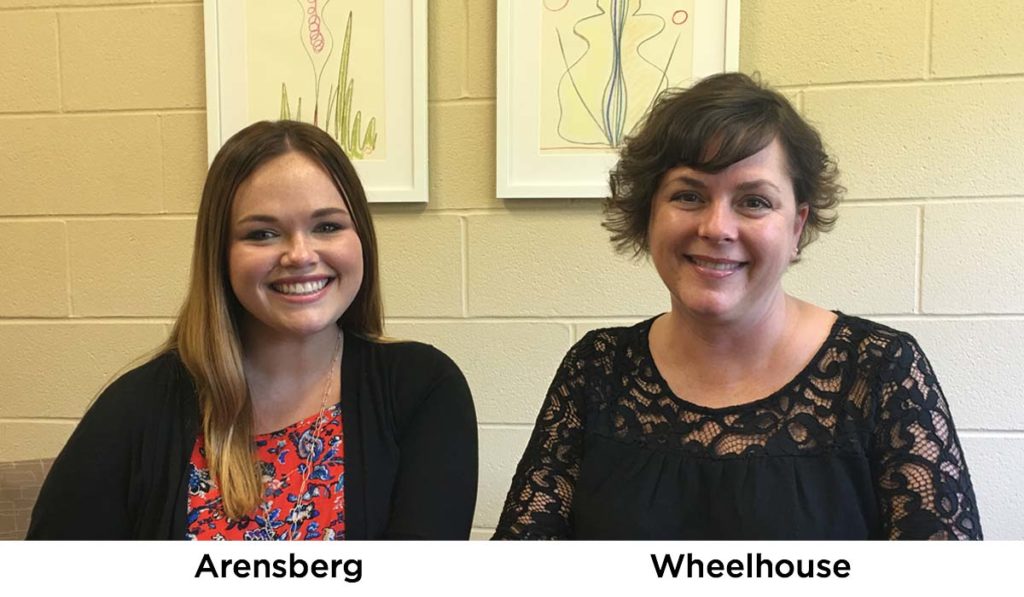Q&A With Therapists About “13 Reasons Why” and How Parents Can Address Teen Suicide

An overwhelming amount of media attention has surrounded the Netflix series “13 Reasons Why” and how the show depicts the topic of teen suicide. The series, originally based on Jay Asher’s 2007 novel with the same title, tells the story of 17-year-old Hannah Baker who records and, after her death, distributes 13 tapes to the 13 people that she felt contributed to her decision to commit suicide. Controversy surrounding the show includes the graphic nature of how Hannah committed suicide was portrayed, how no alternative to suicide was discussed and the potential harm the series might have on teenagers.
Suicide is a topic that the therapists at KVC Hospitals encounter daily. These professionals work to help children and teens receiving psychiatric treatment overcome challenges and learn healthy skills to cope with thoughts of self-harm, depression and anxiety.
We sat down with Clinical Director Lori Wheelhouse, M.A., L.C.P.C., and Clinical Manager Annmarie Arensberg, L.S.C.S.W., to get their feedback on the show and find our how parents can talk to their children about suicide.
Q: What are your thoughts on how “13 Reasons Why” presents teen suicide?
Arensberg: I was hopeful this would open the door for teens to start valuable and crucial conversations about a topic that gets brushed under the rug so often and is avoided due to their being uncomfortable in discussing suicide. I was hopeful this would give parents the avenue to begin those crucial conversations with their kids. I was also hopeful the series would bring about conversations regarding bullying, the stressors with social media and sexual abuse. I thought the series chose topics that are difficult to talk about but very important to have conversations about. While I do feel the show has brought about these crucial conversations and has served as a platform to create awareness about teen suicide, the effects of bullying, social media and its influence today, I don’t feel that the show portrayed support for a sucidial teen in a positive way. The main character finally reached out to her school counselor to discuss these issues and was met with a lack of support. I wish the series would have turned this narrative around and shown the positive outcomes that can be a result of asking for/seeking out help.
Q: How do you think the show allows for discussion of mental health issues and teen suicide?
Wheelhouse: I am excited to see media discussion around mental illness and suicide as well as the start of open discussions that will contribute to decreasing stigma. However, I am concerned about the show sensationalizing suicide, particularly to youth who aren’t able to truly understand the finality of an attempt and the affect it has on families and communities.
Arensberg: There have been both positive and negative reactions to the series, but nonetheless it has sparked conversations and discussions about suicide. It’s important for any parent who has a teen to talk about these things with an open mind and have an open door policy to let their teen know that they are there to discuss this without judgment.
Q: What are some things you wish people knew about mental health and/or teen suicide?
Wheelhouse: I would love for parents and other role models in childrens’ lives to have open discussions about hope and helplessness. Teens who look to suicide as the only option for their pain typically feel no hope and do not feel like there is anyone or anything that can help. Having conversations with youth about the prevalence of trauma, mental illness and normalizing pain in growth should be as important as any other area of education.
Arensberg: I wish people knew that it is OK and encouraged to talk about mental health and suicide. So often this subject matter is swept under the rug, people are scared to talk about it or don’t know how to discuss mental health in general. Suicide and the discussion around it can feel taboo or scary to some and this is a big problem. We have to talk about these things and encourage kids to feel comfortable talking to people they trust.
Q: How should parents discuss this series with their children?
Wheelhouse: Parents should trust their children with open, honest communication. Our kids hear what is going on through media and peers, but it is always helpful for them to hear it from a trusted role model first.
Arensberg: Parents should be open with their kids about the series and come from a non-judgmental perspective. Teens need to feel OK with sharing their feelings, thoughts, emotions and ideas about the series and the subject matter in general. Parents should be encouraged to provide a supportive environment for their kids to feel safe talking about mental health, bullying, suicide or issues with friends.
Additional tips for speaking to your child about suicide:
- Pick a private place that allows for real discussion. Some youth might feel embarrassment or shame when discussing their feelings in a public setting.
- Listen & ask questions. Asking direct questions like, “What do you think about suicide?” helps to immediately start the conversation with honesty. Try not to dominate the conversation. In talking with your child or teen, let them speak.
- Do not judge. Providing a judgment-free zone will help your child or teen feel safe and allow them to be honest about their feelings. When responding, be aware of your tone and mannerisms. Try to not over-react or under-react.
- Get professional help if needed. If you hear from your child or teen that they have felt a sense of hopelessness, severe sadness, or feelings of depression, these might indicate that you and your child or teen might need professional help, contact our psychiatric hospitals at 1-866-KVC-CARES (582-2273), or contact the National Suicide Prevention Lifeline at 1-800-273-TALK (8255).





